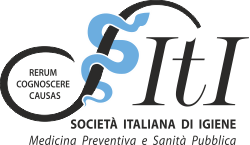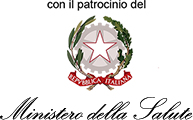The vaccine protects against the disease caused by the Japanese encephalitis virus.
The vaccine against the Japanese encephalitis virus is an inactivated vaccine that can be given to adults and children over 2 months of age.
The vaccine does not protect against other pathogens that can be spread through mosquito bites, so it is essential to take all necessary precautions to avoid being bitten (use of repellent sprays, long-sleeved clothes, coils, vaporisers).
Who should be vaccinated
The risk of contracting the disease is very low for most travellers to Asia, especially for those who travel to urban areas for short periods. However the risk varies depending on the season, destination, duration of the trip and activities carried out.
Vaccination is recommended for those who visit endemic areas for more than one month during the rainy season. Rural or agricultural areas are particularly at risk, especially where irrigation is practiced.
The vaccine is also recommended for those planning a short trip (<1 month) in at-risk areas and which includes 1) outdoor activities (camping, hiking, fishing, etc), especially during the evening and at night 2) overnight stays in accommodation without adequate protection against mosquitoes (air conditioning, mosquito nets).
When to vaccinate
Vaccination can be carried out at any time of the year, however it is recommended for those who go to at-risk areas when the spread of the virus through mosquito bites is more likely. In the temperate areas of south-east Asia this occurs mainly during the warm season (from May to September), whereas in areas with a tropical or subtropical climate it is constant throughout the year, peaking during the rainy season.
Two doses of vaccine, 4 weeks apart, are foreseen. For adults between the ages of 18 and 65, if necessary, it is possible to carry out a rapid cycle of two doses carried out 7 days apart. To allow for the establishment of an effective immune response the vaccination cycle must be completed at least one week before potential exposure to the virus. Booster doses are provided to maintain protection over time.
Who should not be vaccinated (contraindications)
The vaccine is contraindicated for those who have experienced a severe hypersensitivity reaction to the active ingredient or to one of the components (eg protamine sulfate). Administration should be postponed in cases of severe acute fever.
As a precautionary measure, vaccination of pregnant and lactating women is avoided, as sufficient studies are lacking on this topic.
As with all inactivated vaccines, patients undergoing immunosuppressive therapy or who are immunodeficient may develop an inadequate immune response.
The vaccine can be administered concomitantly with the inactivated vaccine against hepatitis A and against rabies; regarding administration with other vaccines no data are available in the literature.
Vaccination risks
Adverse reactions usually appear within the first 3 days of administration. These are mild and resolve within a few days.
In adults, headache (23%), myalgia (15%), flu-like symptoms (11%) and fatigue (11%) are frequent. In children and adolescents, local reactions occur in about 14% of cases, systemic reactions occur in 24% of cases; the most frequent are fever, irritability, diarrhoea, flu-like illness, pain and redness at the injection site.
Sources / Bibliography
- Japanese Encephalitis - Chapter 3 - 2018 Yellow Book | Travelers’ Health | CDC
- Ministero della Salute: Encefalite Giapponese
- Piano Nazionale Prevenzione Vaccinale 2017-2019
- Yun S-I, Lee Y-M. Japanese encephalitis: the virus and vaccines. Hum Vaccines Immunother. 2014;10(2):263–79.
- Erra EO, Kantele A. The Vero cell-derived, inactivated, SA14-14-2 strain-based vaccine (Ixiaro) for prevention of Japanese encephalitis. Expert Rev Vaccines. 2015;14(9):1167–79.
- Pavli A, Maltezou HC. Travel-acquired Japanese encephalitis and vaccination considerations. J Infect Dev Ctries. 2015 Sep 27;9(9):917–24.
- IXIARO, Riassunto delle caratteristiche del prodotto. Ditta PaxVax, ultima revisione testo 26 maggio 2016.



